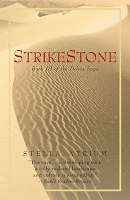I believe in writing with specifics. I tell my students all
the time: call it by it’s name. A
stand of trees is a different image than a stand of birch trees.
Two recent events, though…
 I committed at a radio interview (six weeks from now) that
includes a reading. That is, the
author reading from her own works.
I’m not very auditory – I hate talking on the phone, for example. I attended author readings maybe five
times in my life and hated all of them, except once I heard Michael Ondaatje,
the author of The English Patient read from his short stories. I’m a sucker for
a crisp accent.
I committed at a radio interview (six weeks from now) that
includes a reading. That is, the
author reading from her own works.
I’m not very auditory – I hate talking on the phone, for example. I attended author readings maybe five
times in my life and hated all of them, except once I heard Michael Ondaatje,
the author of The English Patient read from his short stories. I’m a sucker for
a crisp accent.
Except, I’m from the American Midwest living in
Chicago. I have no respect for the
letter ‘t’. With us it’s all dese,
dems, and dose over dare. What will my reading sound like over the radio?
Moreover, what scene shall I select for the 5-minute spot? I review chapter one of the new release
StrikeStone that is Book III in a series. The
scenes are sharp and push the story along nicely, engaging a reader who maybe
has not picked up the first two novels.
Several sentences in the paragraphs, though, are used to identify
characters, such as:
 “I had seldom contacted Kyle Rula,
but received messages through the convent turnkey Sarah, and the Cylay
administrator Vera who had been a childhood friend.”
“I had seldom contacted Kyle Rula,
but received messages through the convent turnkey Sarah, and the Cylay
administrator Vera who had been a childhood friend.”
The reader catches up with Sarah later, and
also with Vera, but not in this scene that I want to read for the radio. I need to delete those sentences for
the excerpt. But I start to scan
the pages and find a wealth of energy spent signifying on the characters and
their back stories. I don’t want
to overwhelm the radio piece with introducing characters that don’t make an
appearance in the allotted five minutes.
To me, the story seems flat after
editing, like the remaining characters are acting without responsibility to
those who I redacted temporarily.
Actions in the scenes are not undertaken in front of community because I
removed the names of people – brother, auntie, daughter, leader – to whom the actors are responsible.
So I start thinking about how
reading in pubic is different from reading in private. A short piece is different than a novel
that’s part of a series.
Adjustments are needed.
Funny thing, though.
In 2005 I was teaching freshman how
to write in complete sentences and asked students in one course to keep a
journal. Since they were required
to, I also started a journal – three 3-page entries each week that were
reflective and confessional.
 Recently, I posted some of the short
writing pieces from that effort on a new eblog titled Writing in the Short Form, intended for my current
creative writing students (in September) who I will guide to write short
fiction in their own voices. “Bare yourselves; dig down to the bone; throw away
caution; expose the dark side for fear and jealousy.” Sound familiar?
Recently, I posted some of the short
writing pieces from that effort on a new eblog titled Writing in the Short Form, intended for my current
creative writing students (in September) who I will guide to write short
fiction in their own voices. “Bare yourselves; dig down to the bone; throw away
caution; expose the dark side for fear and jealousy.” Sound familiar?
I sent the few first posts to a
friend who said, “Yes, the posts are too personal, and you should change all
the players’ names.”
I hate the idea.
I know this feeling is only process frustration. The end-reader knows little about my lofty goals and my compromises. So I changed them, (Marty for Michael and like that). The re-naming effort takes all the hurt out of the paragraphs, like it’s somebody else’s story now. Marty isn’t responsible like Michael was. Go figure.
I hate the idea.
I know this feeling is only process frustration. The end-reader knows little about my lofty goals and my compromises. So I changed them, (Marty for Michael and like that). The re-naming effort takes all the hurt out of the paragraphs, like it’s somebody else’s story now. Marty isn’t responsible like Michael was. Go figure.
What’s in a name? Designer names for
our clothes; names of countries we want to visit; names of villains in
Spiderman movies; the name for the pill needed to stop my skin from
itching. Names are everywhere, and
if we cannot recall them, we cannot have the benefit of the fashion or
geography or camaraderie or healing.
 Sri Lanka was Sinhala in India, and
Taprobane to the ancient Greeks. On a store-bought globe, the island country
was identified as Ceylon until 1972.
Sri Lanka was Sinhala in India, and
Taprobane to the ancient Greeks. On a store-bought globe, the island country
was identified as Ceylon until 1972.
You tell me. Sample the short works on the eblog
that my students will use. Do the names have power?
http://tinyurl.com/kbnfugl




